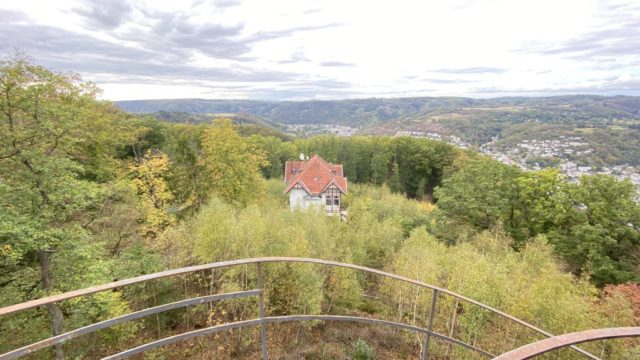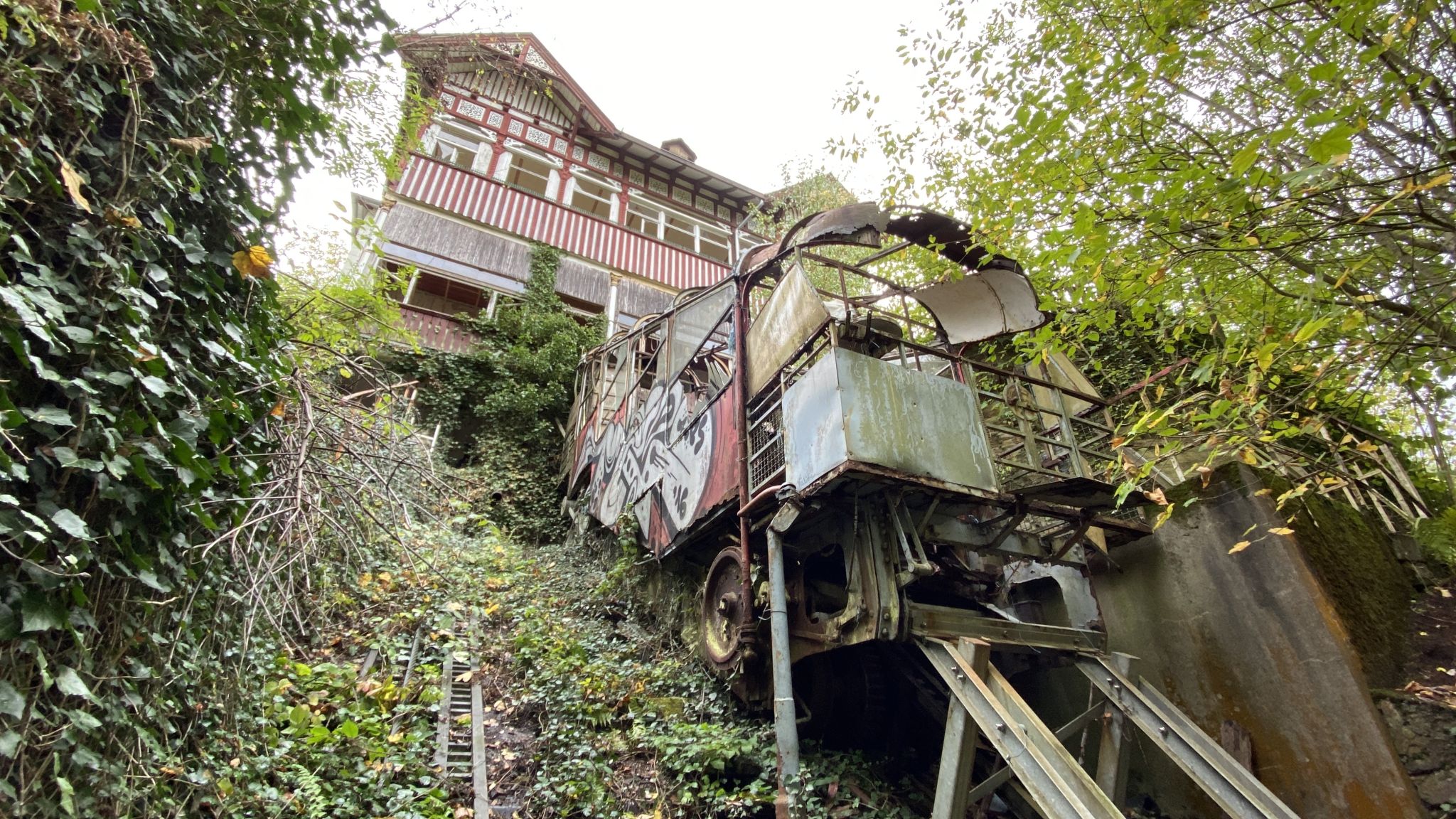The German city of Bad Ems is a town on the Lahn River in Germany. Since the 1870s, it has developed its tourism industry by building hotels and spas.
But for a long time, its most famous attraction was a funicular railway that was used to reach a hotel that stood on the Hohen Malberg mountain at an altitude of 350 meters (1,148 feet).
It became clear to the city that once the hotel was built, it would be almost impossible for guests to reach it. To combat this issue, the Malbergbahn Actien-Gesellschaft (MAG) company was founded in 1885 and officially registered in 1886. It immediately began work on both the hotel and the railway.
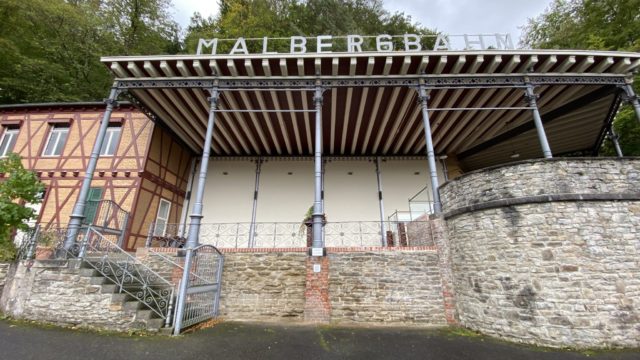
On June 5, 1887, the hotel was officially opened and the cable cars began their first journeys up and down the mountain. The funicular was considered the steepest in Germany because it had to tackle a 54.5 percent incline.
Initially, the funicular could reach a top speed of 7km/h (4.3mph), but after 1963 that went as high as 12km/h (7.4mph). In general, it ran at a speed of 5.4km/h (3.3mph) and ran on a ladder rack.

The funicular was the epitome of German engineering because all motion was achieved using ballast water, meaning that the cable cars were driven by counterbalancing and gravity rather than electronics. Once the passengers were in the upper carriage, it was topped up with water to reach a specific weight, and its descent pulled the lower carriage upward.
The water supplied to the funicular came from an artificial pond that was created on the mountain. The water to fill this pond was pumped up from the Lahn River.
The funicular became a popular attraction all by itself. The mountainous region was already a local recreation area and the funicular was the only way to get to such a height without walking. It was constantly filled with visitors and often carried about 400 people a day.
In 1926, all rights to the funicular were leased to the hotel for the next 25 years. However, the contract was not renewed when it expired so, in 1951, this engineering structure became the property of the city of Bad Ems.
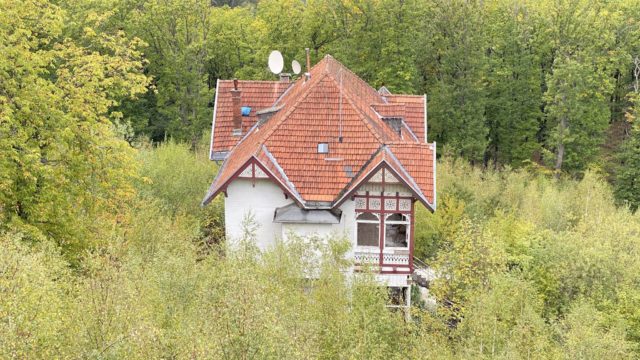
Unfortunately, the city was unable to allocate funds to carry out the necessary maintenance to keep the funicular running. Moreover, some serious flaws had been discovered due to the railway’s age and it would be too costly to remedy them.
In 1979, the funicular was temporarily suspended, but soon it was closed forever. One of the cars remained at the mountain station while the other rested in the valley station.
The Malbergbahn funicular was replaced by another cable car called the Kurwaldbahn, which was opened in 1979 on the opposite bank of the Lahn.

In December 1981, the Malbergbahn funicular, consisting of both the stations and the cable cars, was declared an industrial monument. Over time, the site was damaged by vandalism, but minor renovations were carried out in 1999 to try and preserve this piece of history.
Although the city council decided not to put the railway into operation again, the locals were fond of the old funicular. Even in its ruined state, it still acted as a tourist attraction.
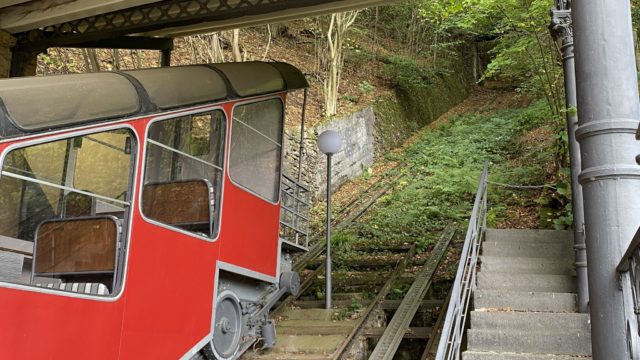
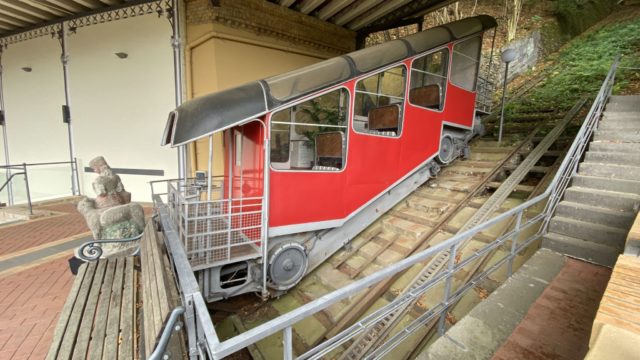
In 1982, Mrs. Elisabeth Eckstein founded Förderverein Malberg & Malbergbahn e. V. to help restore the funicular and hopefully get it running once again.
However, this plan proved to be extremely difficult. Since the funicular had been declared a monument, any restoration work needed to be carried out in accordance with the strict requirements imposed for the protection of monuments. In addition, the dilapidated condition of the railway meant that extensive renovation work was necessary.
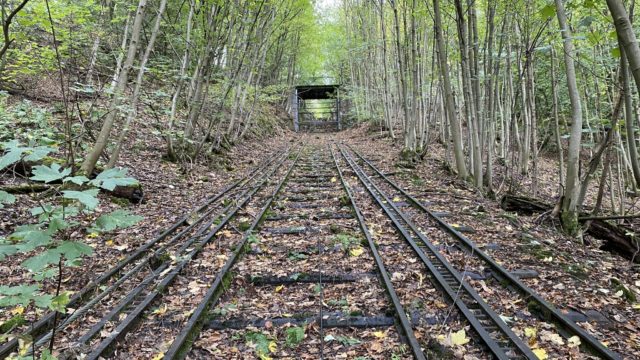
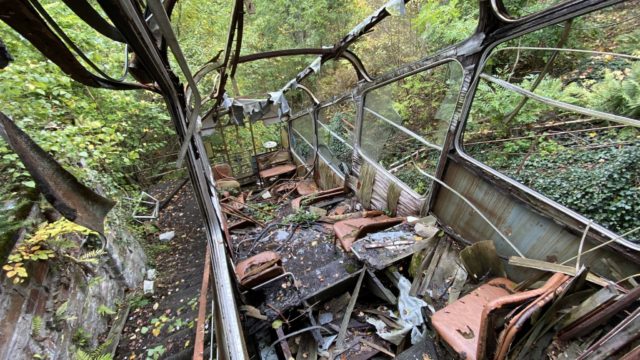
It took until April 2014 before the renovations were advanced enough that Café Eckstein could open at the valley station. The cable car sitting at the station was also lovingly restored, and customers of Café Eckstein can enjoy their meal inside the cable car, which now offers 20 dining seats.
Sadly, the railway car that sits at the top of the mountain has not been so fortunate. It is currently inaccessible because it is in such a dire that it is at risk of collapse.
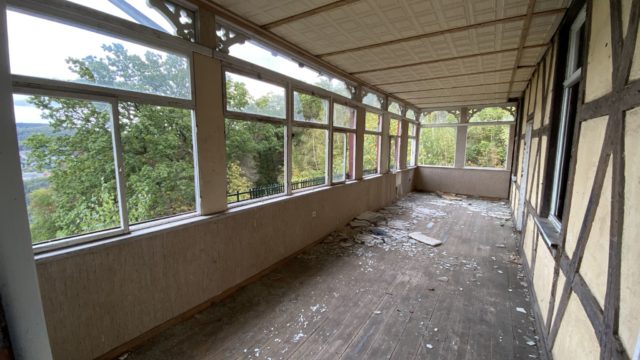
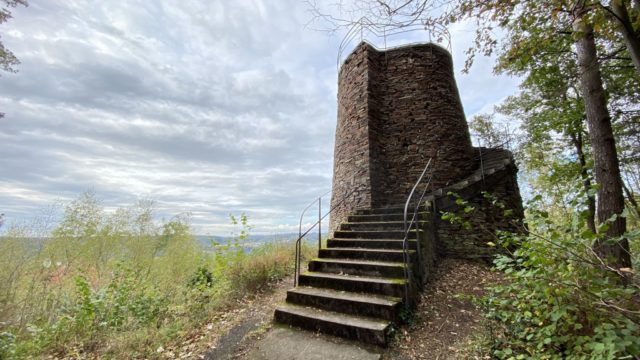
A big thank you to Thomas Schneider allowed us to use his photographs of the funicular railway. Thomas runs a website where he shares beautiful photos taken during family trips, including abandoned places. You should check it via this link.
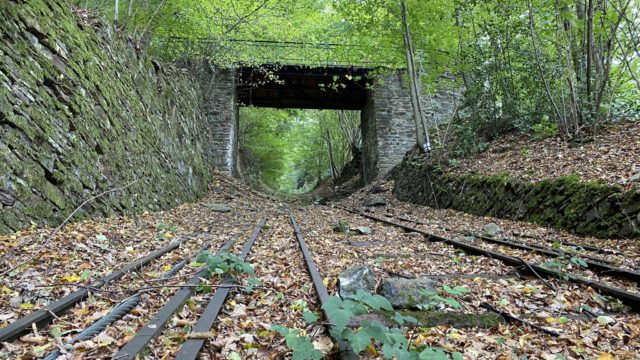
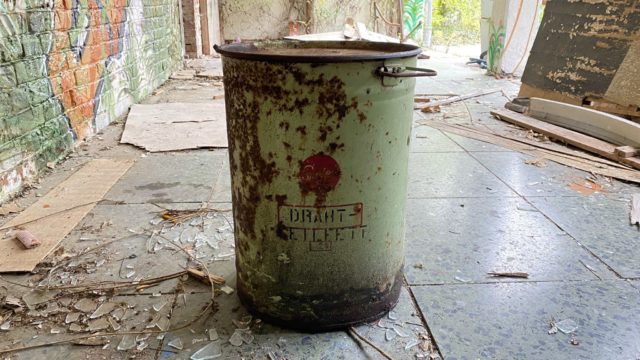
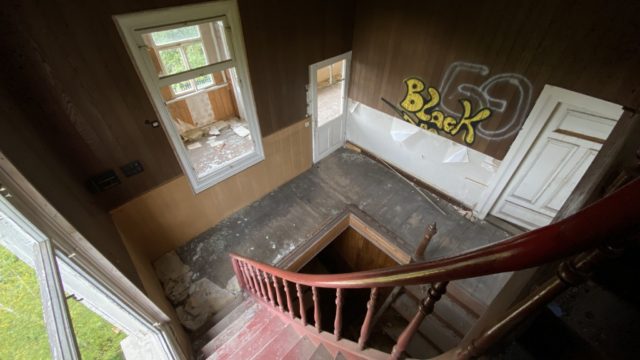
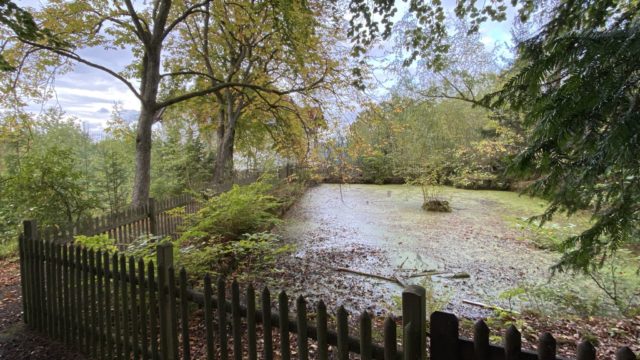
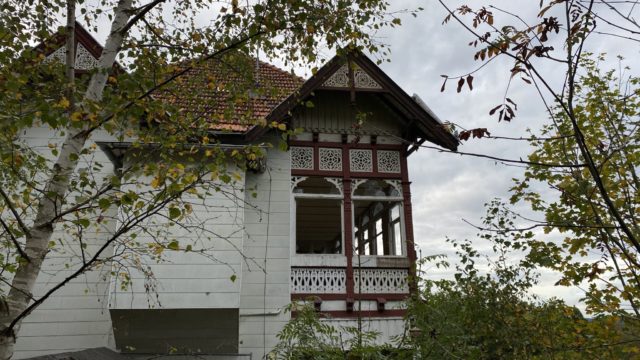
Another Article From Us: Beautiful Abandoned Adria Palace in Budapest
